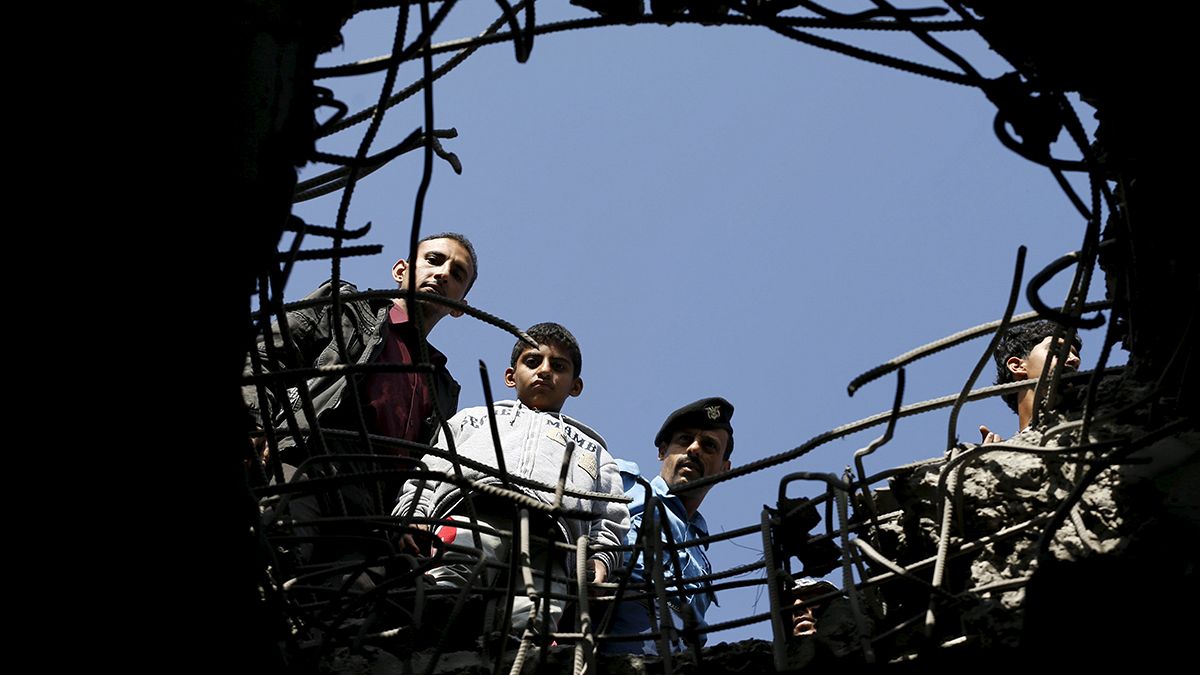Casualties stretch into the thousands and a humanitarian crisis is being exacerbated by the conflict. A ceasefire will precede peace talks, although there have already been several failed attempts to
Yemen has lived through 365 days of war. Waking up to the sound of an explosion is now the norm since the Saudi-led coalition began airstrikes of Iran-allied Houthi rebels on 26 March 2015.
It inspires few headlines and barely any column inches, but the war in Yemen has claimed the lives of more than 6,000 people and a staggering 80 percent of the population are living on the verge of famine.
According to Oxfam, more people in Yemen were killed by explosive weapons in the first seven months of 2015 than anywhere else in the world. Those figures alone should make the conflict front page news.
#365daysofwar with no lasting ceasefire or peace, govts should broker peace not arms! https://t.co/jVnlulPLKG#Yemenpic.twitter.com/CI4UYPMAHc
— Oxfam International (@Oxfam) March 24, 2016
On top of the incessant aerial bombardment, rival factions on the ground are battling for control – with civilians are paying the price of war.
The poorest country in the Arab peninsula, Yemen is now suffering from a humanitarian crisis exacerbated by the conflict. Coalition forces have imposed an aerial and naval blockade to cut off supplies to areas under Houthi control. In a country heavily dependent on imports it means that access to basic supplies such as food, water and medical supplies is scarce, causing prices to soar.
“My son was 14 hours old when he died,” Mohamed told Amnesty International in December 2015. “The doctors told us he needed intensive care and oxygen…We took him to every hospital we possibly could before he finally died. I wanted to take him outside the city but there was no way out.”
Amnesty reports that the Houthi militants and allied forces have blocked the entry of crucial medical supplied to the southern city of Ta’iz recently, and many hospitals were forced to shut down.
With aerial bombardment comes severe damage to infrastructure. Cutting off bridges and airports means the task of delivering desperately need humanitarian aid has become more difficult.
The UN has criticised the targeting of civilians.
Both sides have agreed to a ceasefire on April 10 and peace talks are set to begin in Kuwait a week later. However, there have already been several attempts to bring the conflict to an end.
Background
Yemeni President Ali Abdullah Saleh was forced to step down in 2011 following protests against his 33-year rule. Discussions ended in 2014 with no clear power-sharing arrangements.
The Iran-allied Houthis, who hail from the north marched south in 2014, and came to dominate nearly half of the governates. In January 2015 they rejected a draft constitution and formed an alliance with Saleh. They now control the capital, Sana’a, and other major cities in central Yemen.
Embattled President Abd-Rabbu Mansour Hadi fled to Riyadh in March 2015, setting up a government in exile. Soon afterwards, Saudi Arabia formed a coalition to launch airstrikes to support him and stop the Houthis from taking over the country.
Both the Houthis and the Saudi-led coalition have targeted civilians and the UN claims some attacks may have been war crimes.
The conflict has also attracted other insurgents. The so-called Islamic State (ISIL) and Al-Qaeda militants have also carried out attacks in the country. Al-Qaeda in the Arabian Peninsula is attempting to expand its hold as the government and Houthi rebels battle it out. ISIL has carried out a campaign of car bombings and conducted executions in the south of the country.
Most recently, the group claimed responsibility for a suicide attack which killed 26 people on Friday (25 March). The continuing power vacuum allows ISIL to make gains on the ground.
Prospects for Peace
Peace talks are to take place in Kuwait in mid-April but so far a deal has proved elusive. Tense relations between Saudi Arabia and Iran have already derailed previous attempts at peace – notably, when Riyadh cut diplomatic ties with Tehran during a dispute over the execution of Saudi Shi’ite cleric Sheikh Nimr al-Nimr in January.
The Iran nuclear deal has also threatened the balance of power in the Middle East. The accord lifted sanctions on Tehran which had severely dented its economy. Analysts note Riyadh opposed the deal as it would allow Iran to strengthen its position in the region. Saudi Arabia’s decision to enter the conflict in Yemen sparked fears of a proxy war with Iran.
On the ground, the International Crisis Group notes that neither side is close to a “decisive victory”, and stresses that without a breakthrough in negotiations there will be further political chaos in the country, leading to “calamitous consequences for Yemen’s population and severely undermine Gulf security, particularly Saudi Arabia’s, by fomenting a new refugee crisis and feeding radicalisation in the region to the benefit of violent jihadi groups.”
For the population, the fear is that their suffering goes on unnoticed.
The Norwegian Refugee Council’s regional media adviser for the Middle East, Karl Schrembi lamented that, on a recent trip to Yemen as a taxi driver took him back to the airport he said, “I understand your job is to bring attention to our situation, but how do you do it? Nobody cares. We’ve been in this war for almost a year and everyone has forgotten us.”
Perhaps the very scale of the suffering has something to do with the lack of interest. It is hard to comprehend just how many people are affected when figures such as 80 per cent of the population are in need of humanitarian aid. But this doesn’t make their suffering any less urgent, or indeed the need for lasting peace.
sources: Reuters, Carnegie Europe, The Guardian, Amnesty International, Oxfam, International Crisis Group
